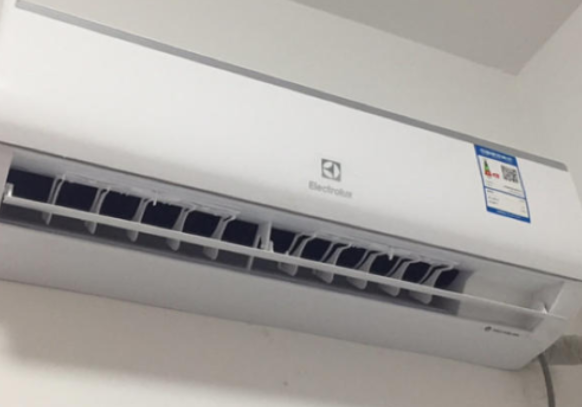Most common ac capacitor problems
Air conditioner capacitor is a very important component in air conditioners, which is usually installed in compressor and fan motors, mainly used to store electrical energy and provide starting current and smoothing current. However, due to long-term use and other reasons, air conditioner capacitors may malfunction, resulting in the air conditioner not functioning properly or even damaging other parts. So, how are we going to know if our ac capacitors are bad?
I. Signs of bad ac capacitors
- Air conditioner does not start properly
If the air conditioner does not start properly, the air conditioner capacitor may be damaged. At this time, we can hear the air conditioning "humming" sound, but the air conditioning can not start.
- Air conditioner stops immediately after starting
If the air conditioner stops immediately after starting, the air conditioner capacitor may be damaged. In this case, we can hear the air conditioner making a "buzzing" sound, but the air conditioner will not run.
- Unstable operation of the air conditioner
If the air conditioner does not run stably, the air conditioner capacitor may be damaged. At this time, we can hear the air conditioning "buzzing" sound, air conditioning will appear obvious shaking when running.
- Poor cooling effect of air conditioning
If the air conditioning cooling effect becomes poor, it may be the air conditioning capacitor is damaged. At this time, we can hear the air conditioning "buzzing" sound, air conditioning cooling effect is not as good as before.
- Air conditioning noise
If the air conditioner is making strange noises, the air conditioner capacitor may be damaged. At this time, we can hear the air conditioning hissing or explosion sound.
You might want to ask, "Will the AC fan run if the capacitor is bad?" Typically, if the capacitor is bad, the fan in the AC unit may not run. The capacitor provides the initial startup power to the compressor and the fan motor. If the capacitor is failing or has failed, it may not provide the necessary power for the fan motor to operate, even if the rest of the system is turned on. However, it's important to note that this can depend on the specific design of your AC system as well as which capacitor has failed (the compressor capacitor or the fan capacitor, if they are separate).
II. how to judge the air conditioning appliance is broken
- Observe the appearance
First, we can observe the appearance of the air conditioning capacitor. If the appearance of the air conditioning capacitor is obviously broken or deformed, then it means that the air conditioning capacitor has been damaged.
- Measurement with a multimeter
Second, we can use a multimeter to make measurements. Adjust the multimeter to capacitance, connect the red pen to the positive terminal of the capacitor, the black pen to the negative terminal of the capacitor, if the multimeter shows a value close to 0, then the air conditioning capacitor is damaged.
Note: You may follow this this article to deepen your knowledge on how to test capacitors using a multimeter.
- Use professional maintenance personnel
If the above methods can not determine whether the air conditioning capacitor is damaged, we can use professional maintenance personnel to carry out testing and repair.
III. What causes AC capacitor to go bad
1 Overload
When the air conditioner is running, the capacitor is loaded with current. If the current is too high, the capacitor may be overloaded, resulting in damage to the capacitor.
2 Overvoltage
When an air conditioner capacitor is subjected to excessive voltage, the capacitor may be damaged. Overvoltage may be caused by fluctuations in grid voltage or malfunction of other components in the circuit.
3 Vibration
Air conditioning capacitors are usually installed in a vibrating environment of the air conditioning outdoor unit. Prolonged vibration may cause damage to the dielectric inside the capacitor, leading to capacitor failure.
4 High Temperature
The outdoor unit of an air conditioner operates in a high temperature environment, which may lead to deterioration and damage of the capacitor. High temperature environments can cause the dielectric inside the capacitor to gradually decompose, thus reducing the performance of the capacitor.
IV. How to deal with air conditioning capacitor problems
- Replacement of capacitors
One of the ways to deal with damaged air conditioning capacitors is to replace the capacitors, but be careful to choose capacitors with the same specifications as the original capacitors to ensure that they can work properly.
- Inspect the air conditioning unit
In addition to replacing the capacitor, the air conditioning unit needs to be inspected for other faults.
- Regular Maintenance
In order to avoid damage to the air-conditioning capacitor, we need to carry out regular maintenance of the air-conditioning unit, regularly cleaning the dust and dirt inside the air-conditioner, checking the heat dissipation of the air-conditioning unit, etc.
- Avoid overloading
Avoiding excessive load on the air conditioning motor can reduce the overload of the air conditioning capacitor and prolong the service life of the air conditioning capacitor.
- Avoid overheating
Avoid air-conditioning capacitors for a long time in a high-temperature environment, which can reduce the aging and failure of air-conditioning capacitors and extend the service life of air-conditioning capacitors.





